"Transnational Political Contention in Europe (TraPoCo)" is a three-year project carried out under the "Jean Monnet Network" action of the Erasmus Plus programme, which aims to promote knowledge, innovate teaching activities, and foster dialogue between the academia and civil society on studies relating to European integration.
The TraPoCo project is led by Scuola Normale Superiore with the academic coordination of Prof. Donatella Della Porta, dean of the Faculty of Political and Social Sciences. The international network of universities, think tanks, and associations brings together scholars from different disciplinary areas – including sociology, law, and European studies – and from different countries – Italy, Spain, Belgium, Ireland, Austria, and Serbia. Over the course of three years (2020-2023), the team will study the role of societal actors such as movements, non-governmental organisations, activists, trade unions etc. in strengthening the space of rights and democracy in Europe.
Why TraPoCo
Representative democracy, multilateralism, and the European Union (EU) are increasingly being questioned; at the same time, transnational political dynamics are growing, for and against the liberal order. Some of these dynamics can undermine the EU and its constituent values, such as rule of law, while others can contribute to strengthening democratic guarantees at EU level as well as of individual Member States or those aspiring to join.
In recent years, Europe and the world have seen major mobilisations and protests, from the youth movements of "Fridays for future" for climate justice to the more recent transnational wave of mobilisations against racial discrimination generated by "Black Lives Matter”. The current pandemic has the potential to generate profound transformations in our society and raises important issues related to jobs, the environment, climate, health, and redistribution. In an interconnected and interdependent world, these are all challenges of a supranational nature that involve actors engaged in collective actions at a transnational level.
TraPoCo topics
The study of transnational political dynamics in Europe is an emerging field of research that looks at the interaction of practices and processes that cross the borders of nation states and have an impact on the functioning of democracy inside and outside the Union.
TraPoCo intends to contribute to the advancement of research on the practices of mobilisation and protest (protests, legal activism, strikes, advocacy) of actors such as social movements, activists, civil society organisations, trade unions, etc. in transnational political arenas on issues relating to European integration. In particular, TraPoCo studies how, in what forms, and under what conditions the societal actors that work for the enlargement of the space of fundamental rights benefit from transnational political spaces at EU level and, in turn, contribute to European integration in some form. TraPoCo focuses on the forms of collective action that these actors choose in order to pursue their demands on issues such as environmental protection and climate justice, migration, labour policies, and anti-discrimination – all areas which are covered by a considerable community acquis and on which transnational alliances and mobilisations emerge more and more often.
Current academic debates in these fields – social movements, civil society, environment, work, migration – are disconnected from each other and from European integration studies. So far, European Studies have generally underestimated the role of civil society actors in the process of building the European project. Greater integration of these fields and a strengthened dialogue between disciplines can also have a positive impact on the definition of related policies – an n issue that is very important today if we consider the recurring debate on the democratic deficit of the EU or that on the future of Europe.
In a context where the space for action of civil society actors is also shrinking in the Member States, TraPoCo makes a valuable contribution to understanding whether, when, and how transnational mobilisations can reinvigorate the democracy of the EU and its Member States.
Namely, TraPoCo intends to study the conditions in which collective actions that reach a European dimension occur, the forms of these transnational mobilisations, and the impact they have. TraPoCo examines the extent to which these actors manage to place their demands on the European political agenda, shifting conflicts and demands from the national to the European level; or vice versa, how they use European institutions and instruments to protect fundamental rights and promote democracy and participation in their own countries.
About us
In addition to the Faculty of Political Science of the Scuola Normale Superiore based in Florence and the think tank Osservatorio Balcani Caucaso Transeuropa (Trento), the project partners are: University of Belgrade (Department of Sociology), University College Dublin (School of Politics and International Relations and UCD College of Business), University of Natural Resources and Life Sciences (Institute of Forest, Environmental, and Natural Resources Policy) of Vienna, and the organisation The Good Lobby (Bilbao/ Brussels). The University of Trento is an associate partner.
This composite partnership and international working group includes authoritative scholars, but also young researchers from different disciplines who are experts on topics such as civil society, social movements, transnational dynamics, political philosophy and human rights, labour policies and trade union relations, environmental policies, business and EU law. The two non-academic partners complete the consortium that opens up to the perspectives of civil society: OBC Transeuropa, a think tank committed to promoting the construction of Europe from below and to raising public awareness on issues that are at the centre of numerous European challenges, and the European civic start-up The Good Lobby, active in promoting European citizenship and participatory democracy at EU level.
| Scuola Normale Superiore | |
|
Prof. Donatella Della Porta , is professor of political science, dean of the Faculty of Political and Social Sciences and Director of the PhD program in Political Science and Sociology at the Scuola Normale Superiore in Florence, where she also leads the COSMOS - Center on Social Movement Studies . Among the main topics of her research: social movements, political violence, terrorism, corruption, the police and protest policing. She has directed a major ERC project "Mobilizing for Democracy" on civil society participation in democratization processes in Europe, the Middle East, Asia and Latin America. In 2011, she was the recipient of the Mattei Dogan Prize for distinguished achievements in the field of political sociology. She is Honorary Doctor of the universities of Lausanne, Bucharest, Goteborg, Jyvaskyla and the University of Peloponnese. She is the author or editor of 90 books, 150 journal articles and 150 contributions in edited volumes. |
|
|
Chiara Milan is Assistant Professor at the Faculty of Political and Social Sciences, Scuola Normale Superiore where she coordinates the Jean Monnet Network “Transnational Political Contention in Europe” (TraPoCo) and where she is member of the research group COSMOS - Center on Social Movement Studies . Prior to that she was a Marie Sklodowska-Curie Fellow at the Center for Southeast European Studies, University of Graz (Austria) where she led the research project “Reclaiming the cities in the post-Yugoslav space”. She holds a Ph.D. in Social and Political Sciences from the European University Institute, she received a MA with honors in Development Studies from the University of Bologna and a BA in Political Science and International Relations from the University of Padova (Italy). Her research interests include social movements and civic activism, nationalism, citizenship, ethnicity, migration and youth activism, with a particular focus on Southeastern Europe. She is the author of the book "Social Mobilization Beyond Ethnicity. Grassroots Movements and Civic Activism in Bosnia and Herzegovina" (Routledge, 2020). |
|
|
|
Federico Alagna is a post-doctoral researcher at the Faculty of Political and Social Sciences, Scuola Normale Superiore. He also works as teaching assistant at the Department of Political and Social Sciences, University of Bologna, and is an associate member of the Nijmegen Centre for Border Research, Radboud University (NL). He holds a PhD (joint doctorate) from the University of Bologna and the Radboud University. His main research interests relate to EU and Italian migration policies, with a particular focus on bottom-up processes and on the role played by civil society actors in policy-making and implementation. His contributions have been published in scholarly journals, edited books, reports, magazines and newspapers. Federico has been socially and politically engaged for more than fifteen years, in Italy and abroad, mostly in the fields of municipalism, right to the city, participatory practices, migration and the fight against the mafia. In the past, he also served as Deputy-Mayor for Culture and Public Education of the City of Messina, Sicily. |
|
|
Chiara Martini studies Politics and Social Research at Ca' Foscari University in Venice. In 2019 she completed a Master in Migration Studies and in the last years she has been collaborating with different organisations in projects supporting migrants, refugees and asylum seekers in Greece, along the Balkan route and in Italy. Her research interests concern migration and migration policies, border studies, mobility and immobility of refugees and asylum seekers in the European context, social movements and civic activism. |
| Osservatorio Balcani Caucaso Transeuropa | |
|
|
Luisa Chiodi, has been the director of Osservatorio Balcani Caucaso Transeuropa since 2006. She holds a PhD in Social and Political Science from the European University Institute of Fiesole (Florence) and a degree in Political Science from the University of Milan. From 2003 to 2008 she was lecturer for the chair of 'Eastern European studies' at the Faculty of Political Science at the University of Bologna. She coordinated several research projects and is author of publications on civil society, transnational social dynamics and European integration. Her twitter account is @luisachiodi |
| University of Belgrade | |
|
Mina Petrović is a Full Professor at the Department of Sociology, Faculty of Philosophy, University of Belgrade. Her interests are in spatial aspects of collective action, including theoretical research on their causes as well as empirical surveys on social movements related to the issues of environmental, spatial, and mobility justice. She is well experienced in conducting social surveys as well as in quantitative and qualitative data analysis. She participated in many national and international projects in which civic activism in Serbia was the research focus, particularly activism related to the issues of housing availability, illegal construction, misuse of urban construction land, and environmental pollution, such as: “Belgrade post-socialist urban evolution (2006-2007); „The Gates of Belgrade: Safety, Privacy and New Housing Patterns in Post-Comunist City“ (2008); “Public Participation in Environmental Decision-Making: The Case of Borand Pancevo” (2012); Homelessness and Housing Exclusion in Serbia (2013); Social Housing in Transition Countries (2012-2013); “Contemporary globalization and reterritorialization of society” (2014-2020), etc. Her recent research interest is focusing on issues of rural development in the context of globalization, especially on global land grabbing and civic activism it causes at the local, national, and transnational level. |
|
|
Jelisaveta Petrović , is an Assistant Professor at the Department of Sociology, Faculty of Philosophy, University of Belgrade. Her interests are in environmental activism (PhD thesis on the environmental movement in Serbia) and other forms of civic engagement, in particular social movements. Jelisaveta is experienced in conducting surveys and quantitative data analysis as well as in collecting qualitative data on social movements, environmental activism, and protests. She has been involved in several research projects related to the civic engagement in Serbia: “Public Participation in Environmental Decision-Making: the Case of Bor and Pancevo” (2012); "Protest Against Dictatorship’’ in 2017; and "1 of 5 Million’’ in 2019. Jelisaveta participates in the COST action Environmental Network for Environmental Citizenship . In addition, she participated in international comparative surveys - European Social Survey (ESS) and many other research projects released within the scope of the macro-project “Challenges of New Social Integration in Serbia: Concepts and Actors” (2010-2020). |
|
|
Jelena Pesić , is Assistant Professor at the Department of Sociology, Faculty of Philosophy, University of Belgrade. She is interested in theoretical foundations of collective action and social movements, but also has experience in conducting surveys, quantitative data analysis, and collecting qualitative data on social movements, civic activism, and protests. She has been involved in two research projects related to recent civic protests in Serbia ("Protest Against Dictatorship’’ in 2017 and "1 of 5 Million’’ in 2019). In addition, she is experienced in international comparative surveys and research projects, such as "Eastern Enlargement - Western Enlargement. Cultural Encounters in the European Economy and Society after the Accession", "Understanding Nascent Capitalism in Eastern Europe", "Informal Relations Between Politics and Economy in Post-Socialism". She is skilled in statistical analysis and in writing policy documents. |
|
| The Good Lobby | |
|
Alberto Alemanno , is Jean Monnet Professor of European Union Law and Regulation at HEC Paris. Alberto is also the scientific director of the EU Public Interest Law Clinic established by HEC Paris and New York University School of Law and founder of the civic start-up The Good Lobby . Due to his commitment to bridge the gap between academic research and policy action, he regularly provides advice to a variety of NGOs and governments across the world as well as international organisations, such as the the European Commission, the European Parliament, the Organisation for Economic Cooperation and Development, and the World Health Organisation on various aspects of European Union law, international regulatory cooperation, international trade, and global health law as well as evidence-based policymaking. His research and teaching activities focus on EU Law, International Economic Law, WTO law, and Risk Regulation as well as Regulatory Reform. Alberto Alemanno has taught at Georgetown University, Amsterdam University, St. Gallen University, Bocconi University, Tokyo University, Moscow State University, Fribourg University, Scuola Superiore Sant'Anna of Pisa, Macau Law School, Liège Law School, and the European University Institute. Alberto holds LLM degrees from the College of Europe and Harvard Law School and a Ph.D. in International Law & Economics from Bocconi University. He regularly publishes Op-Eds in Le Monde, Il Sole 24 Ore, and the Huffington post and his work has been featured in The Economist, The Financial Times, Science and Nature. |
|
| University College Dublin | |
|
Graham Finlay (Ph.D. Johns Hopkins, 2002) has been a Lecturer in the School of Politics and International Relations, University College Dublin since 2004. Before that, he taught in the Department of Philosophy of Trinity College Dublin from 2002-2004. He has also taught at University College Cork, the University of Calgary, the University of Maryland, Baltimore County and the Johns Hopkins University. In 2009-2010, he was a Member of the School of Social Sciences of the Institute for Advanced Study, Princeton, working on a project on 'Education for Cosmopolitan Citizenship'. His research interests include the history of political thought, especially John Stuart Mill, consequentialist thought, citizenship and development education, the theory and politics of human rights (especially migrants' rights), and various topics in international justice, including migration and development. He was Principal Investigator for UCD's role in two large European Commission funded projects: "Fostering Human Rights Among European Policies" which examined how the human rights policies of the European Union might be made more coherent in their role promoting human rights worldwide and "bEUcitizen: Barriers to European Union Citizenship" which focused on the barriers to enjoyment of EU citizenship that face both EU citizens and non-citizens. He also contributes to UCD's Horizon 2020 "GLOBUS: Reconsidering European Contributions to Global Justice" project. He frequently appears on Irish radio on a variety of topics related to his research, as well as general topics in politics, history, and philosophy. |
|
|
Roland Erne has been teaching international and comparative employment relations at the UCD College of Business of the University College Dublin since 2003 and is a member of the Human Resources Management and Employment Relations Group of the UCD School of Business. Erne is Jean Monnet Chair of European Integration and Employment Relations at UCD (2016-2019) and an adjunct professor at the ILR School at Cornell University (2008-to date). He has been a research fellow at the Centre for Advanced Study in Oslo, visiting professor at the Ecole Normale Supérieure de Cachan (2012), and Marie Curie Fellow at the Centre for the Study of Social Justice, University of Oxford. In 2017, Erne was awarded one of only two European Research Council (ERC) Consolidator Grants across all disciplines presented to Irish based researchers under this ERC funding round. Erne received this award for a research project titled "Labour Politics and the EU's New Economic Governance Regime" which aims to explore the challenges and possibilities that the new EU governance regime poses to labour movements and the methodological nationalism in the field. In “European Unions. Labor's Quest for a Transnational Democracy” (Cornell University Press, 2010), Erne describes the emergence of a European trade union movement that crosses national boundaries and challenges the assertion that no realistic prospect exists for remedying the EU's democratic deficit. Roland Erne is a graduate of the Freie Universität Berlin and the Institut d'études politiques de Paris. He obtained his PhD in social and political sciences at the European University Institute in Florence. |
|
|
Imre Szabó is a post-doctoral researcher in the ERC project ‘Labour Politics and the EU’s New Economic Governance Regime’ at the College of Business of the UCD and at the Geary Institute for Public Policy. He earned his PhD in political science from Central European University, Budapest. His main research interest is the politics of labour in public services, with a focus on water provision, healthcare and education. Through his research, Imre challenges the view that the advent of a post-industrial society would mitigate class conflict. He investigates public services, where employee voice, trade union activity and bargaining disputes have been on the rise in recent decades. He also looks at the impact of European integration on labour politics in public services that were traditionally sheltered from transnational market pressures. Imre relies on comparative research methods that also take into account processes of transnationalisation. In so doing, he exploits his language skills and commitment to interdisciplinary dialogue. His research has been published in leading employment relations journals. He has teaching experience in political economy, employment relations and globalisation. Publications are available on his Google Scholar profile . |
|
| Darragh Golden is a post-doctoral researcher in the ERC project ‘Labour Politics and the EU’s New Economic Governance Regime’ at the College of Business of the UCD. Darragh focuses on the EU's new economic governance regime and the implications for the transport sector, specifically, but also labour politics more broadly. Subsequent to a postgraduate scholarship from the IRC, Darragh was awarded an international scholarship from the Norwegian research council to work on Globalisation and the Possibility of Transnational Actors at the Centre of Advanced Studies, Oslo. | |
| University of Natural Resources and Life Sciences, Vienna | |
|
Aron Buzogany Assistant professor at the Institute of Forest, Environmental and Natural Resource Policy, University of Natural Resources and Life Sciences, Vienna, Austria. He holds a PhDfrom Freie Universität Berlin and has held academic positions at Freie Universität, Yale University, the German Public Administration Institute, and the University of Munich. His research focuses on comparative politics and policymaking in the European Union, with a focus on environmental and energy policies as well as civil society. Research keywords: EU environmental policymaking, civil society and environmental organisation in EU context, implementation of EU environmental legislation, climate justice movement |
|
|
|
Patrick Scherhaufer is Senior Lecturer at the Institute of Forest, Environmental and Natural Resource Policy, University of Natural Resources and Life Science, Vienna. He specialises in research in Public Policy, Qualitative and Multi-method Research and Science, Technology and Environmental Politics. Research keywords: Austrian and EU environmental and energy policy, participatory democracy, European Integration and Europeanisation; qualitative social science methods, inter- and transdisciplinarity, stakeholder engagement |
As part of the 3-year project, the partners will develop a joint research programme, promote the enrichment of the teaching offer of the partner universities, and foster dialogue between the academia and the rest of society through seminars, an international Summer School, and various meetings with political decision-makers at national and European level. Namely, the TraPoCo work plan combines:
- research and publication of a series of scientific articles that will be collected in a volume published in Open access;
- networking activities between researchers and two academic conferences, in Florence and Vienna;
- teaching activity aimed at students of the partner universities thanks to a series of Visiting Lectures held by the academic coordinators of the partners in the other universities of the consortium;
- training activities aimed at researchers, activists, and civil society from all over Europe thanks to an international Summer School to be held in July 2021 in Bilbao;
- training activities on civic activation and participation at European level for activists, civil society organisations, and journalists thanks to a series of seminars in various Italian cities;
- engagement and dialogue activities with European stakeholders and policy-makers through a series of public and policy events, webinars with experts, and the drafting of policy recommendations;
- scientific dissemination and promotion of public debate on the themes of the project through the publication of articles, insights, interviews, podcasts on the portal www.balcanicaucaso.org.
Dialogue with civil society and decision-makers
Tra.Po.Co has a strong vocation for disseminating and promoting an ongoing dialogue between academia, civil society, and political decision-makers in order to foster a mutual learning process between the academic world and stakeholders, open the world of research to perspectives of civil society, and promote the formulation of public policies based on scientific evidence. Tra.Po.Co involves a large number of stakeholders – civil society organisations, activists, journalists, students, and policy-makers at local, national, and European level, thanks to the numerous public, policy, and training initiatives planned. Tra.Po.CO has a wide geographical projection that goes beyond the 5 countries of the project partners: public and dissemination initiatives will take place in other EU countries (Bulgaria, Romania, Belgium) and candidate countries of the Western Balkans dealing with the enlargement process.
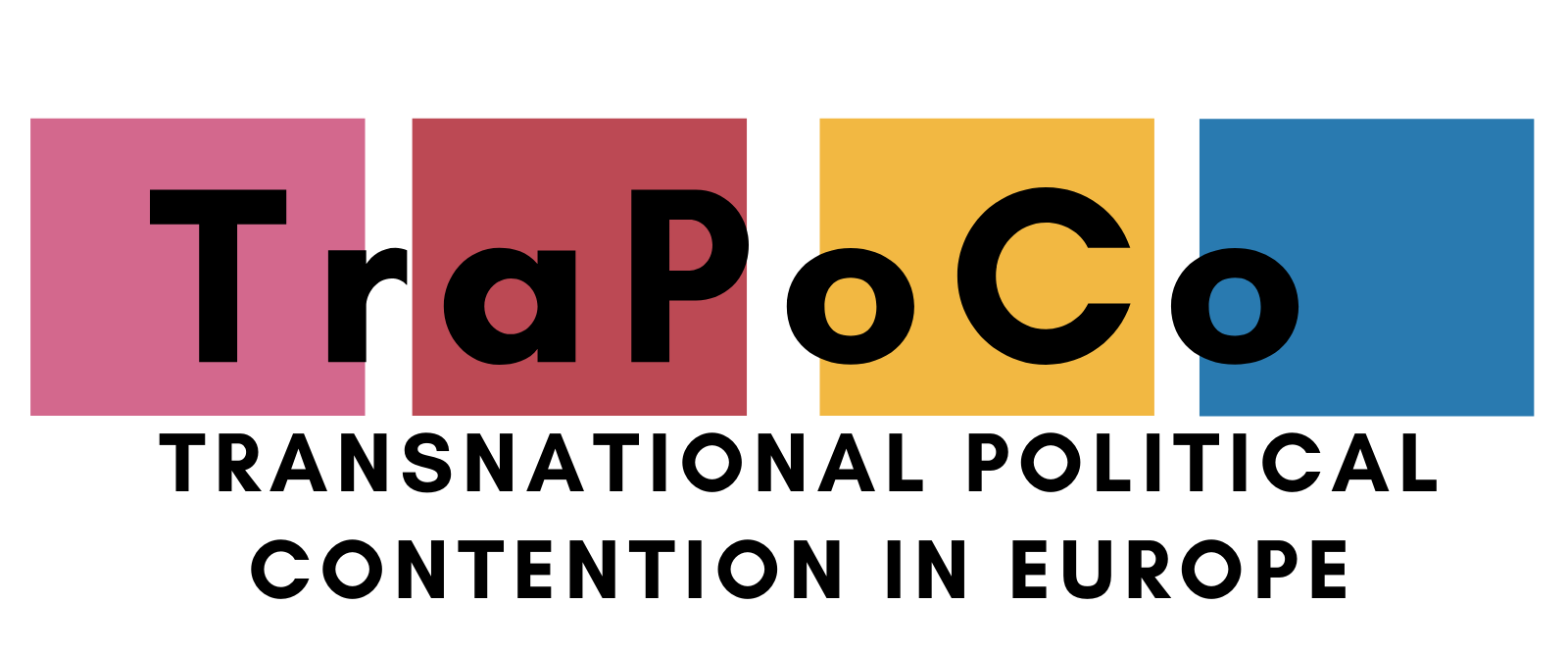









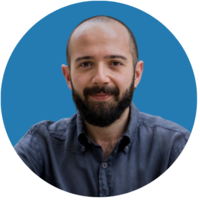





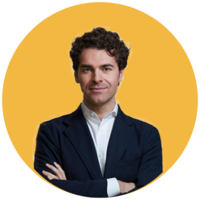


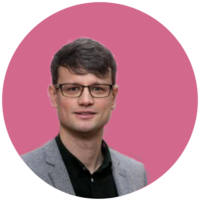

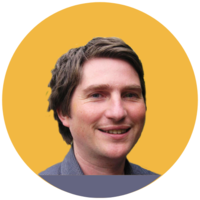

 To Top
To Top